Sir David Attenborough: 'The next 100 years could either witness a mass extinction of ocean life or a spectacular recovery'
Sir David Attenborough has co-authored a book and narrated a new film to mark his 99th birthday.
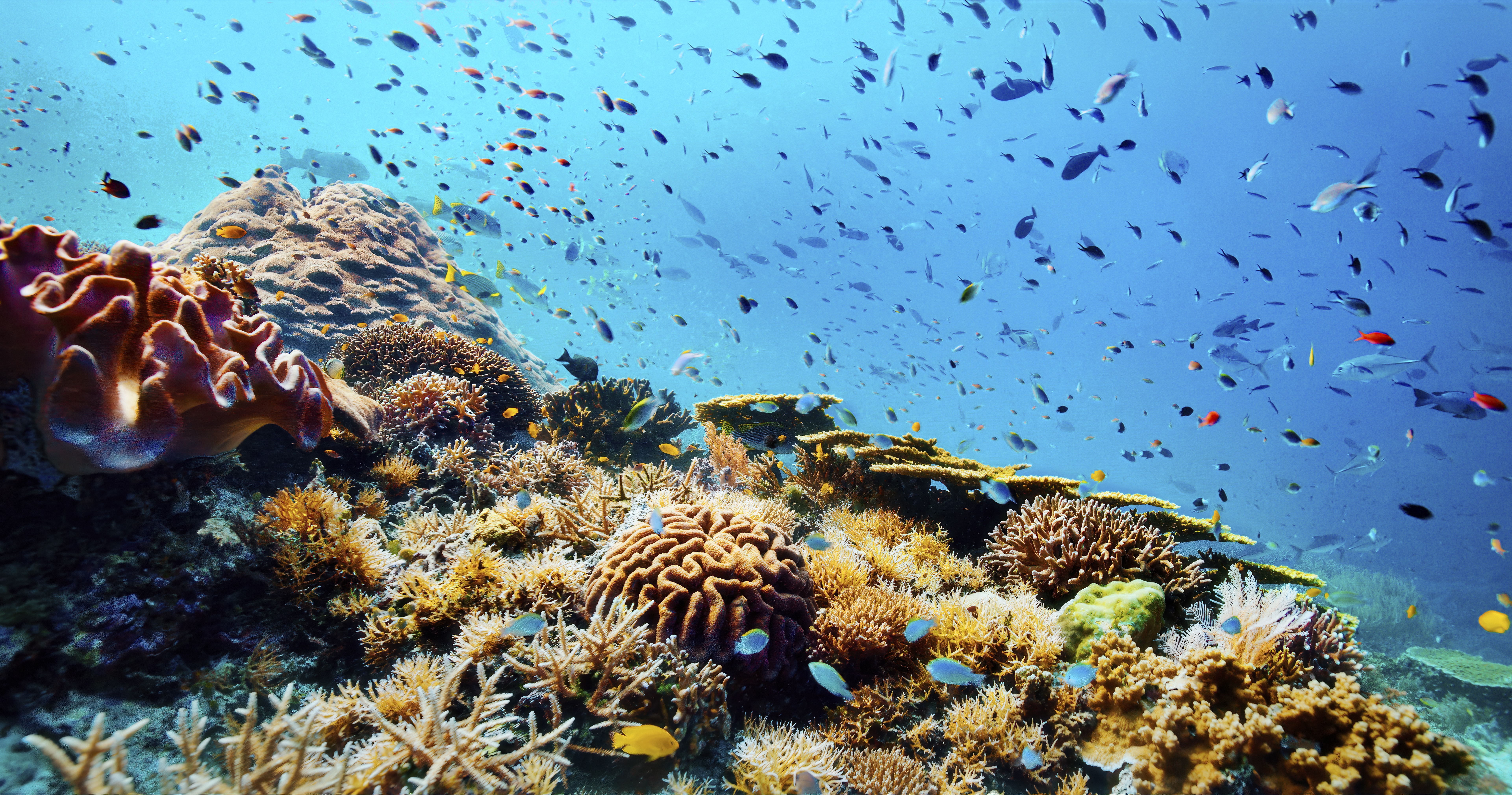

When I sat down at my desk this morning I never expected to hear an anecdote about octopuses that would blow my mind. It came from speaking to Colin Butfield, the co-founder and director of Open Planet Studios, who has just written a book with Sir David Attenborough.
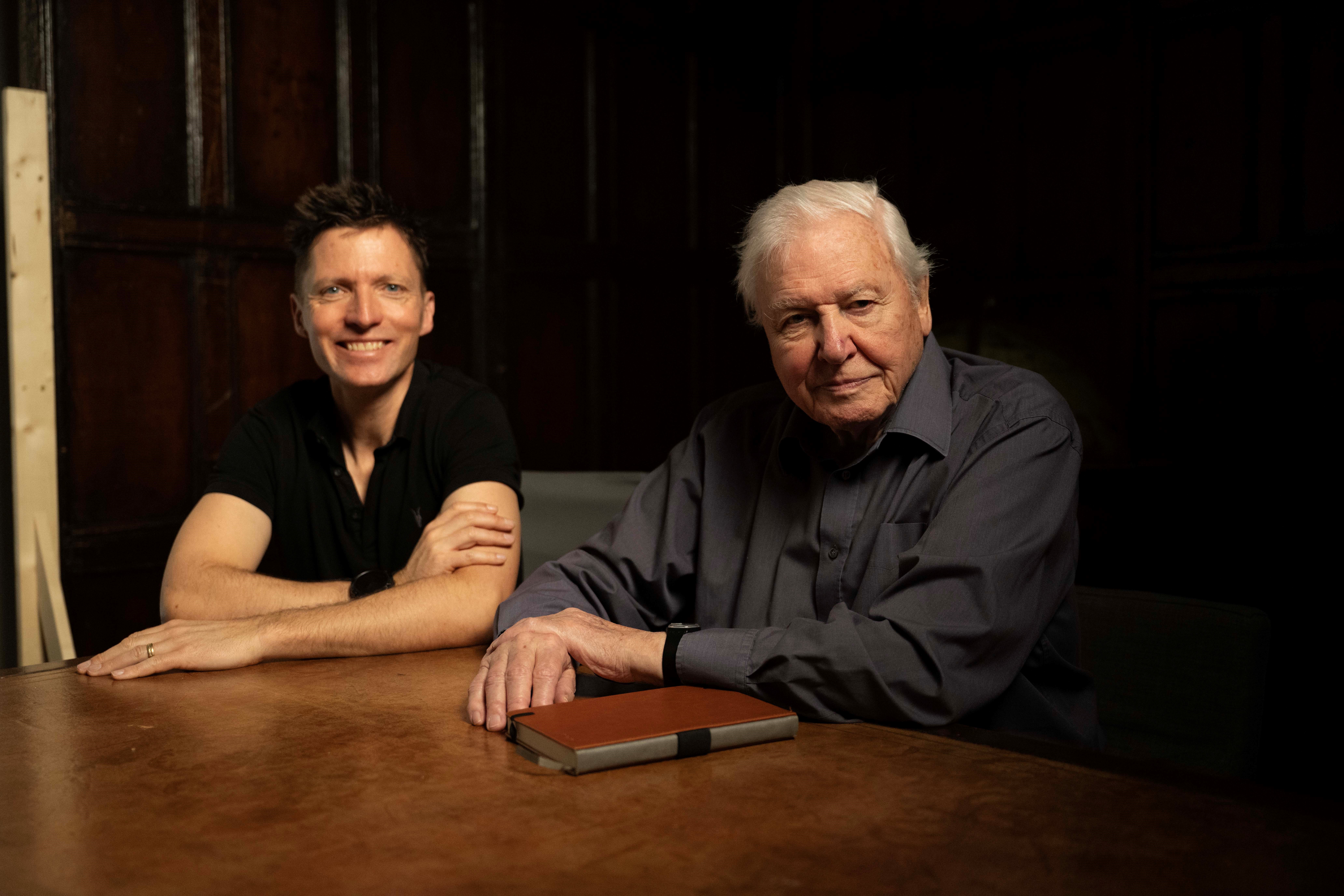
'I don’t think anybody has written a book like this before,' says Colin Butfield, who has collaborated with Sir David Attenborough on multiple projects.
Ocean: Earth’s Last Wilderness will be published on May 8, coinciding with Attenborough’s 99th birthday, at the same time that an Attenborough-narrated film on the same subject will be released in cinemas worldwide. We’ve all heard variations on a slightly vague, but nonetheless important statistic about how humankind has only explored about 10% of what lies beneath the world’s waves. From icy poles to remote coral islands, Ocean offers a tantalising peek into eight unique habitats through the stories of explorers.
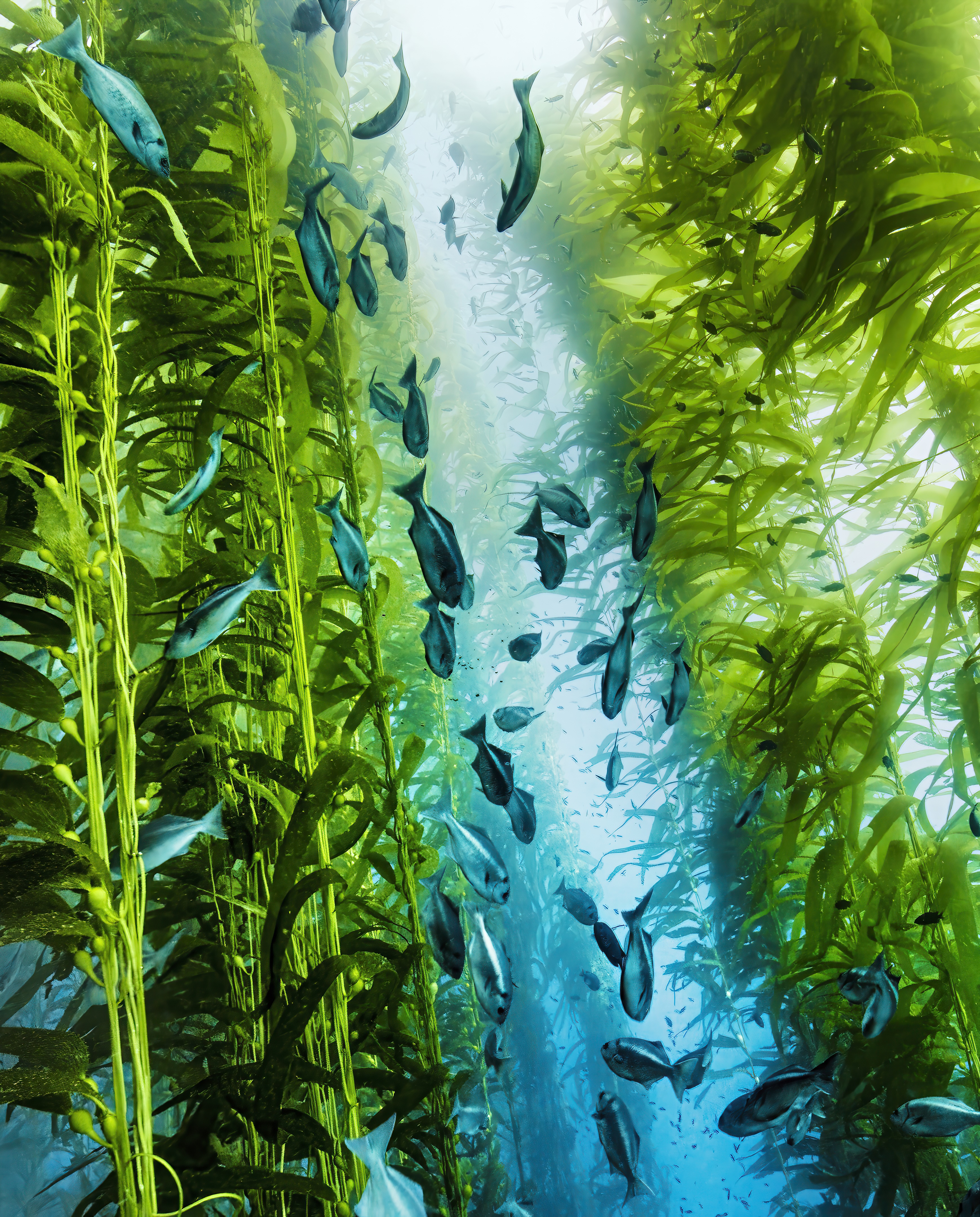
Kelp forest are a vital habitat and food source for marine life and play a crucial role in carbon sequestration.
‘A couple of years ago, David and I were talking about just how much incredible discovery there's been in the ocean over the past 100 years,’ remembers Butfield. ‘And how, although there are a lot of scientific publications, very few people know the stories behind them — the incredible expeditions, the ridiculous species people find, the big changes that are happening. So we decided to tell those adventure stories so that people, regardless of their background and experience, could just pick up and read what is, hopefully, a great tale. David and I have made a lot of films together and we’ve always found that people connect most with narrative, that sense of beginning, middle and end. In short, we wanted to convey science through stories.’
As well as illustrating the ‘thrill of discovery’, writes Attenborough in his preface, the authors also wish to shine a light on ‘the danger our ocean is in… we have changed the ocean so profoundly that the next 100 years could either witness a mass extinction of ocean life or a spectacular recovery… I remain convinced that the more people enjoy and understand the natural world, the greater our hope of saving both it and ourselves becomes’.
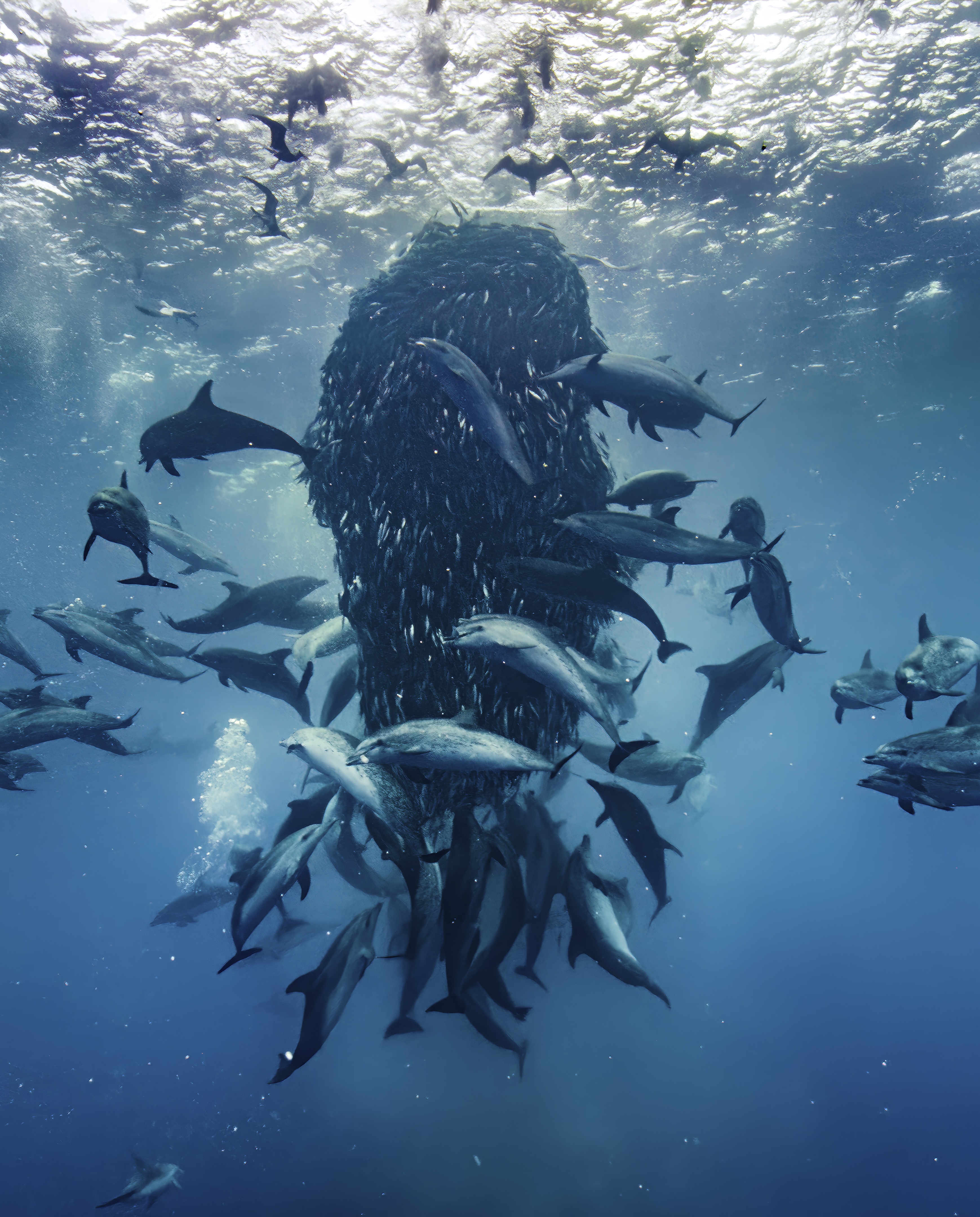
Bait balls — the disco balls of the ocean — form when small fish swarm together in a tightly packed spherical formation. It's a natural defence mechanism against larger predators.
Eight of the stories, including discoveries and tales of recovery, come from Attenborough himself and his experiences filming across the world and the others are from equally ‘incredible individuals’, says Butfield. ‘I don’t think anybody has written a book like this before.’ He explains how the stories can be read in any order. You could dip into the coral reef then head to a kelp forest or the Arctic, ‘but they all build together, so by the end of it, you've got this kind of intertwined sense of the ocean’.
Although the book and the film are connected, the stories are all different. ‘We started work on the film first, but we finished the book first,’ adds Butfield, explaining how some narratives were just too difficult to film; Butfield’s favourite, from the book, involves the aforementioned octopuses.
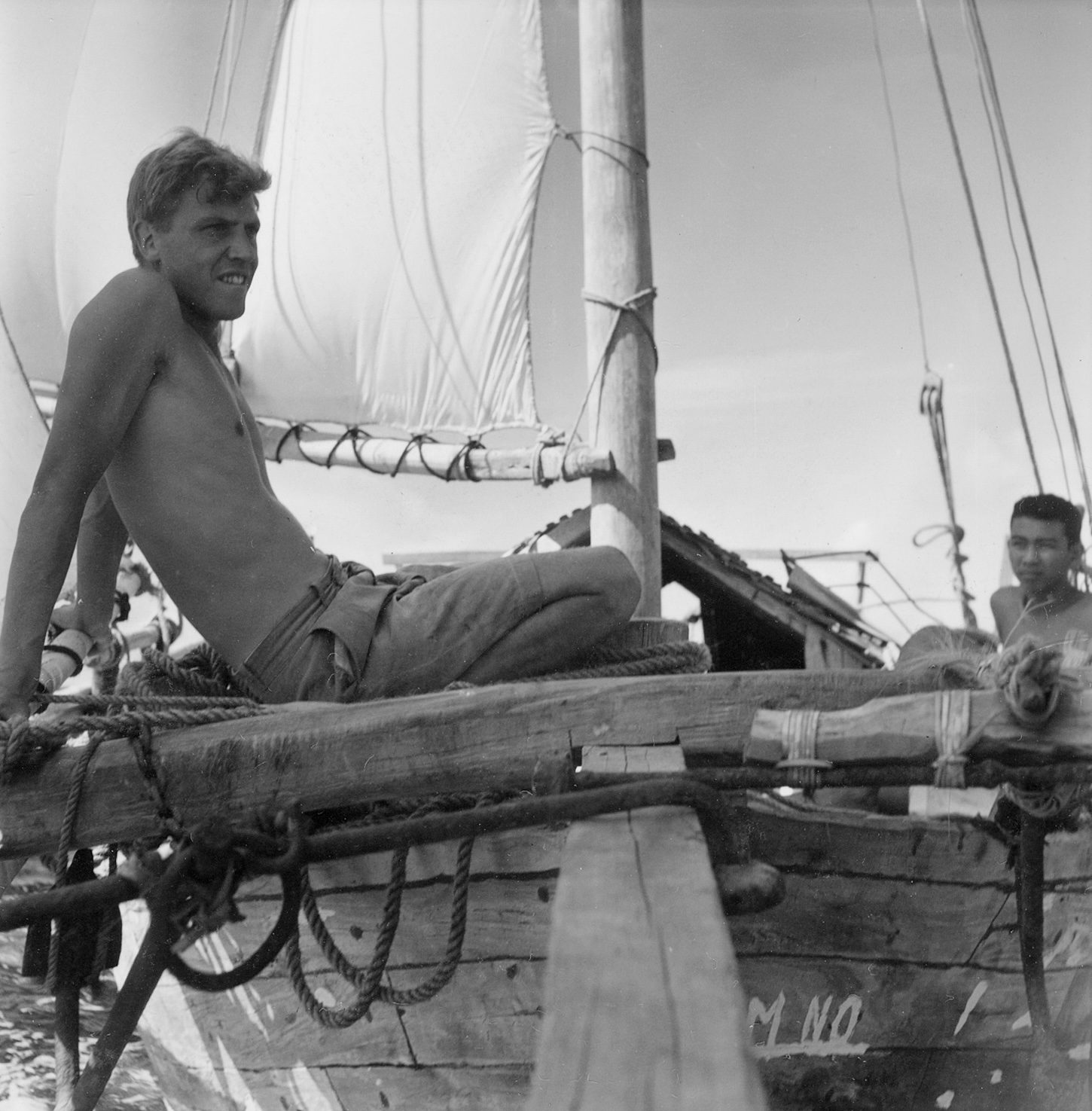
Today, Sir David Attenborough is known for his presenting, but he has previously worked in the Navy, edited children's science books and produced programmes, behind the scenes, for the BBC.
The tale came from marine scientist Chad King, who works with deep-sea submersibles. Off the coast of California, he decided to send one down to the base of Davidson Seamount (an underwater mountain), about 2,500 metres deep. ‘Obviously, it's dark down there, and they're shining these massive torches around,’ says Butfield. ‘They see these things that look like upside down footballs with weird bobbly bits on top.’ At first he thought there were hundreds, but when he got closer he realised there were ‘thousands and thousands and thousands’. Closer still, and the ‘footballs’ were identified as deep-sea octopuses, clearly alive — and these are ‘solitary creatures, they don't hang out together generally’.
Exquisite houses, the beauty of Nature, and how to get the most from your life, straight to your inbox.
After a subsequent expedition, it was discovered that these were all female octopuses, all either due to give birth or in the process of giving birth — and ‘they were all in these sort of warm water seeps, around little cracks in the Earth's crust where it's just slightly warmer than everywhere else’. The expedition team nicknamed it the octopus’s garden, although a futuristic maternity ward is what springs to my mind. ‘Octopuses normally give birth alone and they often die doing it. They are solitary creatures, almost never seen in big groups. Nobody had even a clue that this was out there. Not even an inkling.’
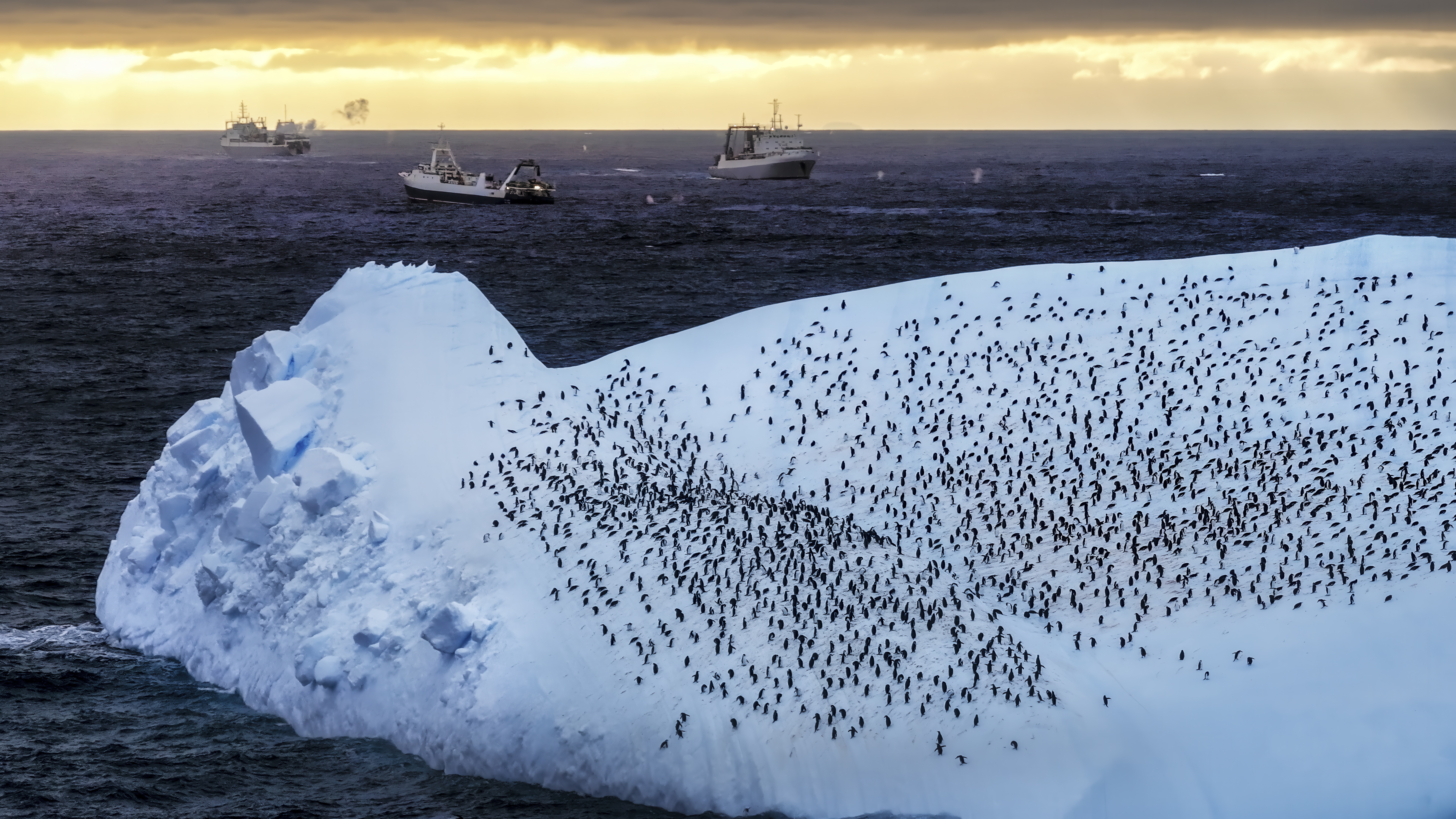
There an estimated 8million chinstrap penguin pairs living in the regions around and in Antarctica.
Butfield continues: ‘The only theory that Chad’s been able to come up with is that lying in the warm water enables them to give birth much quicker, so they lose fewer reserves, so they can then survive.’ We imagine that one of them must have figured this out and communicated to all the others. Octopuses are intelligent creatures, ‘up there with dolphins or monkeys. But has this been happening for 100,000 years? Or did it start happening a year ago? Nobody knows.’
Our oceans cover two thirds of the planet, we’ve barely glimpsed their wonders and already there is plenty to astound, as the new book and film show. Although the first big deep-sea explorations happened in the 1970s, they were few and far between. ‘It’s only really since the invention of satellite mapping and multi-beam sonar, where they can scan the bottom, that we've got any idea what's going on,’ explains Butfield. ‘Even so, with these technologies, you’d only get a basic map of the ocean floor. You'd have no idea what was living there at all, unless you went down and looked. We've understood more in the past 100 years than in the rest of human history, for sure. But it's only the beginning.’
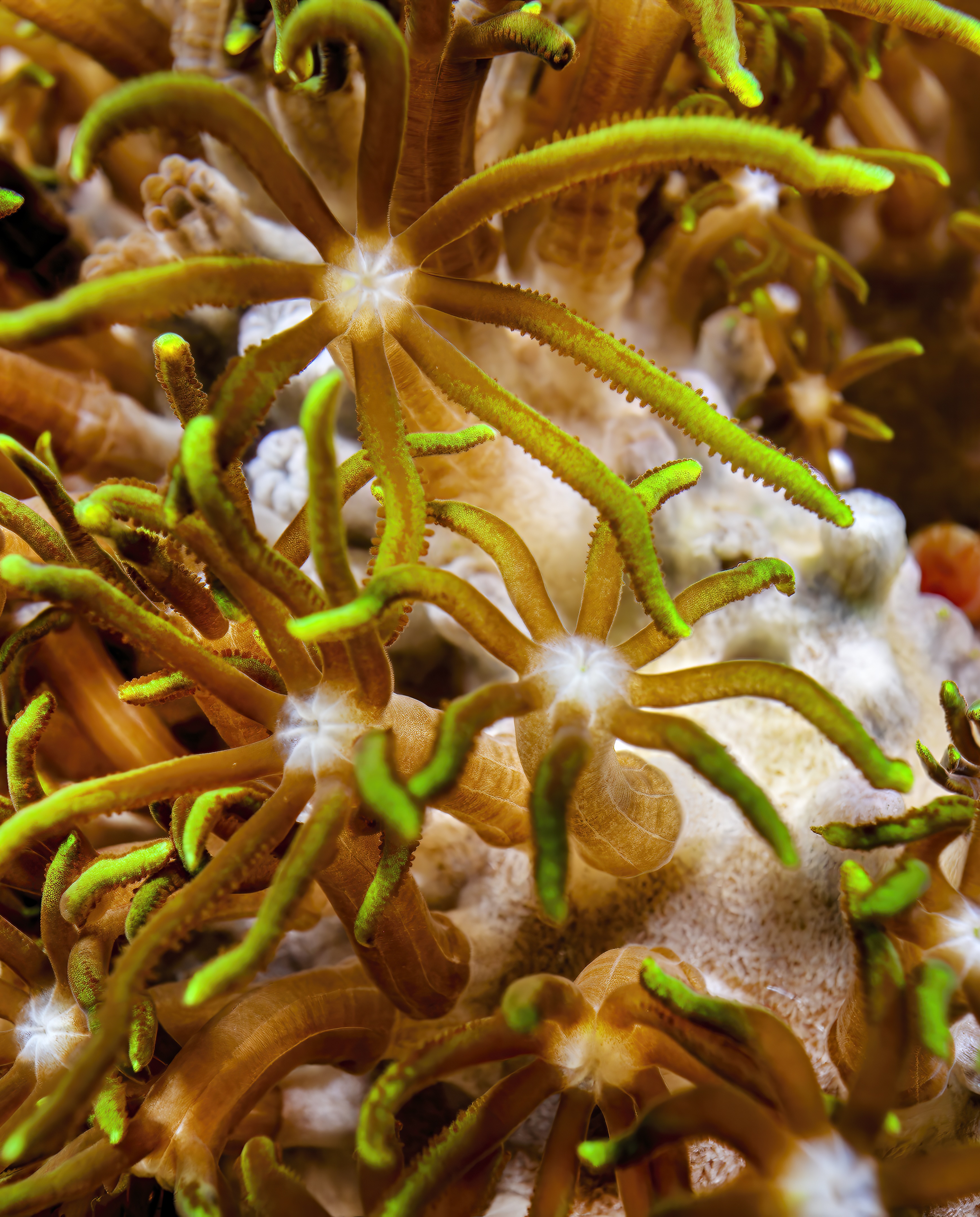
Green star corals are typically found in the Indo-Pacific Ocean.
He continues: ‘As soon as I heard this story I told my wife, I told my kids, I told David. And they all said “What??”. That’s when I knew this book was going to work. If you want crazy science and exploration stories, they're there. If you want to find a bit of hope about how the world might get quite a lot better over the next few years, which I think quite a lot of us would probably like, it’s in there.’
Ocean: Earth’s Last Wilderness is published by John Murray Press (£28) and the film of the same name is released in 600 UK cinemas on May 8 and then, a month later, will be available to view on Disney+. Butfield and Attenborough’s previous projects have included Netflix’s Our Planet, Prince William's Earthshot Prize and feature documentary A Life on Our Planet, but this is the first time they have written a book together.
Annunciata grew up in the wilds of Lancashire and now lives in Hampshire with a husband, two daughters and an awful pug called Parsley. She’s been floating round the Country Life office for more than a decade, her work winning the Property Magazine of the Year Award in 2022 (Property Press Awards). Before that, she had a two-year stint writing ‘all kinds of fiction’ for The Sunday Times Travel Magazine, worked in internal comms for Country Life’s publisher (which has had many names in recent years but was then called IPC Media), and spent another year researching for a historical biographer, whose then primary focus was Graham Greene and John Henry Newman and whose filing system was a collection of wardrobes and chests of drawers filled with torn scraps of paper. During this time, she regularly gave tours of 17th-century Milton Manor, Oxfordshire, which may or may not have been designed by Inigo Jones, and co-founded a literary, art and music festival, at which Johnny Flynn headlined. When not writing and editing for Country Life, Annunciata is also a director of TIN MAN ART, a contemporary art gallery founded in 2021 by her husband, James Elwes.
-
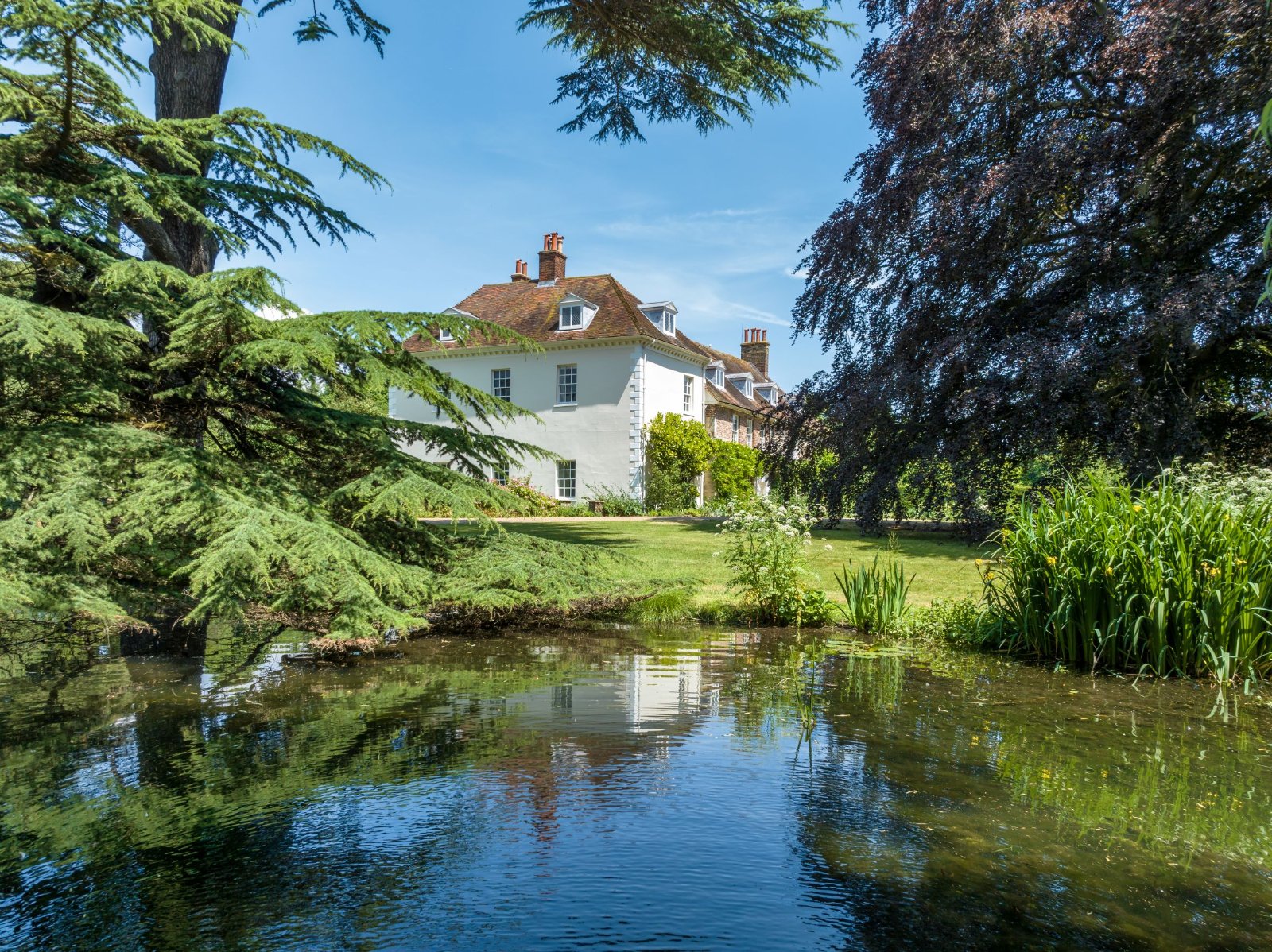 826 years of history, painstaking restoration and 'a garden like no other' at this former National Trust house which has come to the market in Kent
826 years of history, painstaking restoration and 'a garden like no other' at this former National Trust house which has come to the market in KentA blooming property in Kent showcases the original garden of England. Penny Churchill takes a look.
-
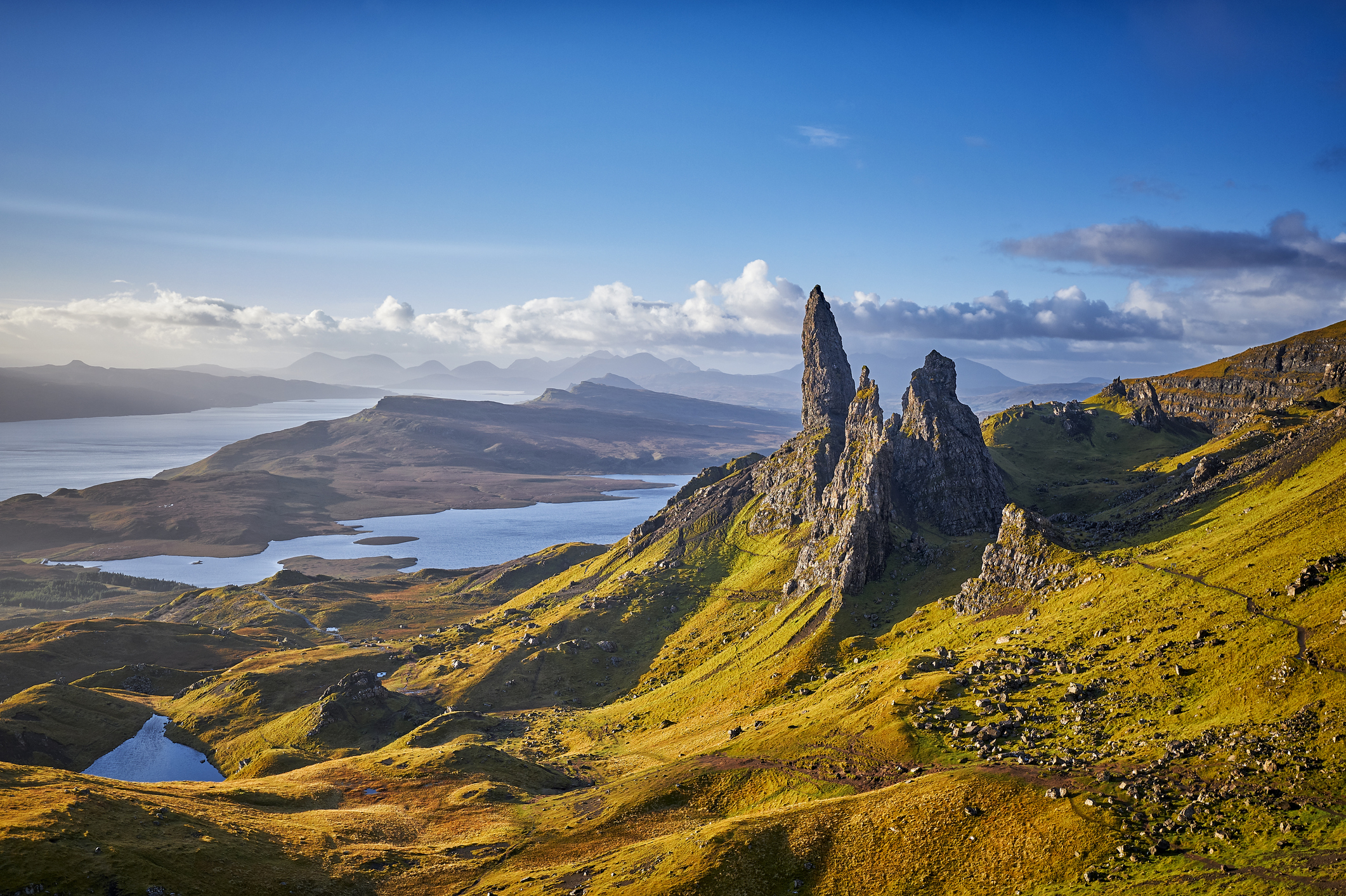 From Summertime to sphagnum: Country Life Quiz of the Day, June 25, 2025
From Summertime to sphagnum: Country Life Quiz of the Day, June 25, 2025Wednesday's quiz ponders the last British woman to lift a trophy at Wimbledon.
-
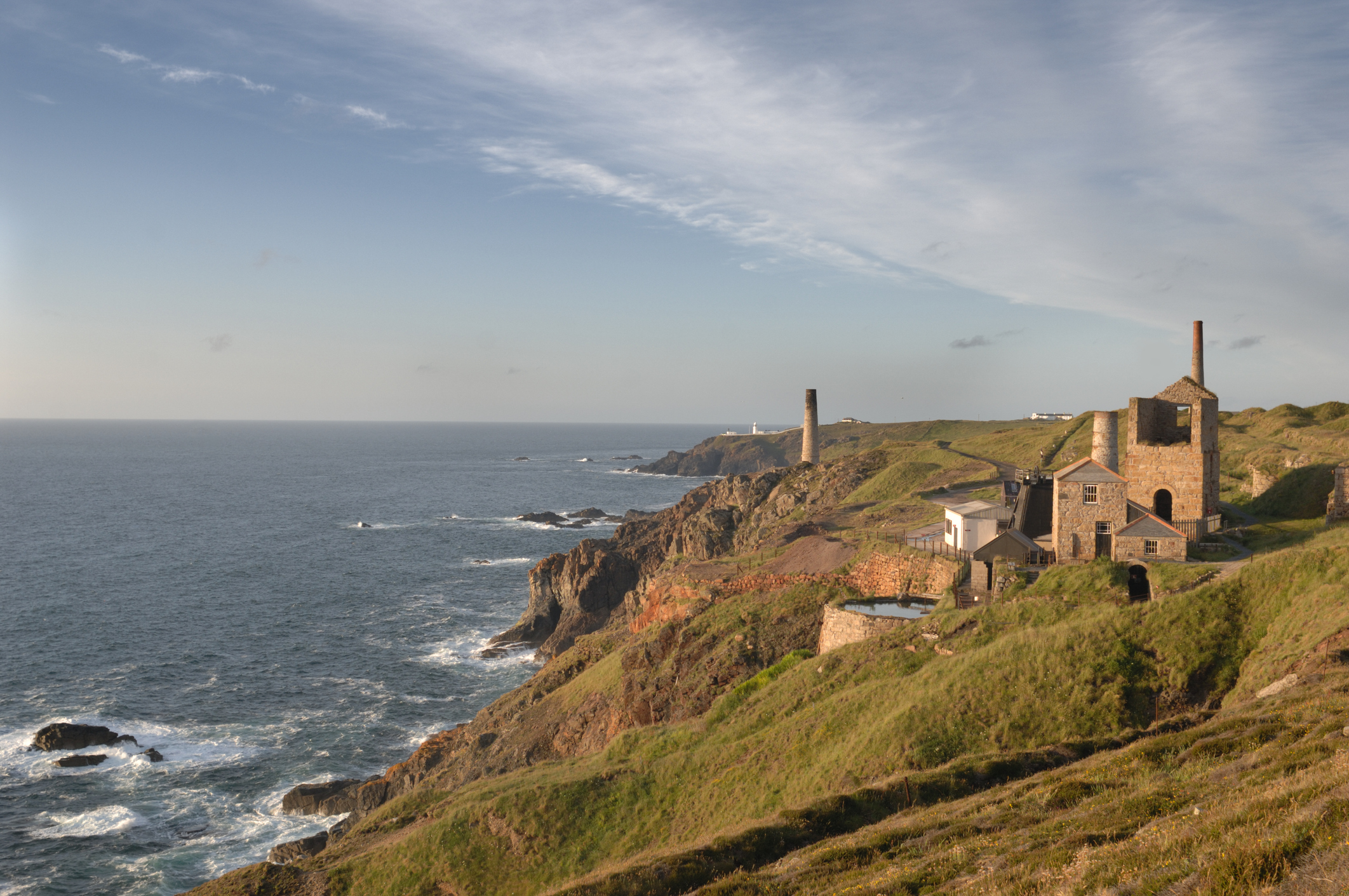 Corinne Fowler: Exploring the hidden history of the British countryside, one walk at a time
Corinne Fowler: Exploring the hidden history of the British countryside, one walk at a timeProfessor Corinne Fowler joins the Country Life Podcast.
-
 Why society needs snobs to tell us that 'actually, we've got this terribly wrong'
Why society needs snobs to tell us that 'actually, we've got this terribly wrong'Necessary arbiters of taste or entitled has-beens? Will Hosie discusses the implications of society turning against its snobs.
-
 'I take a box of watercolours and a sketchpad with me everywhere': Tess Newall's consuming passions
'I take a box of watercolours and a sketchpad with me everywhere': Tess Newall's consuming passionsDecorative artist Tess Newall, best known for her bespoke murals and furniture, talks to Country Life about her prized collection of painted plates, her love of Thin Lizzy and her eclectic podcast taste.
-
 'When it comes to dating, longer notes are allowed and potentially even encouraged': A modern-day guide to voice notes
'When it comes to dating, longer notes are allowed and potentially even encouraged': A modern-day guide to voice notesSophia Money-Coutts is the new Debrett's and she's here every Wednesday to set some modern etiquette wrongs, right.
-
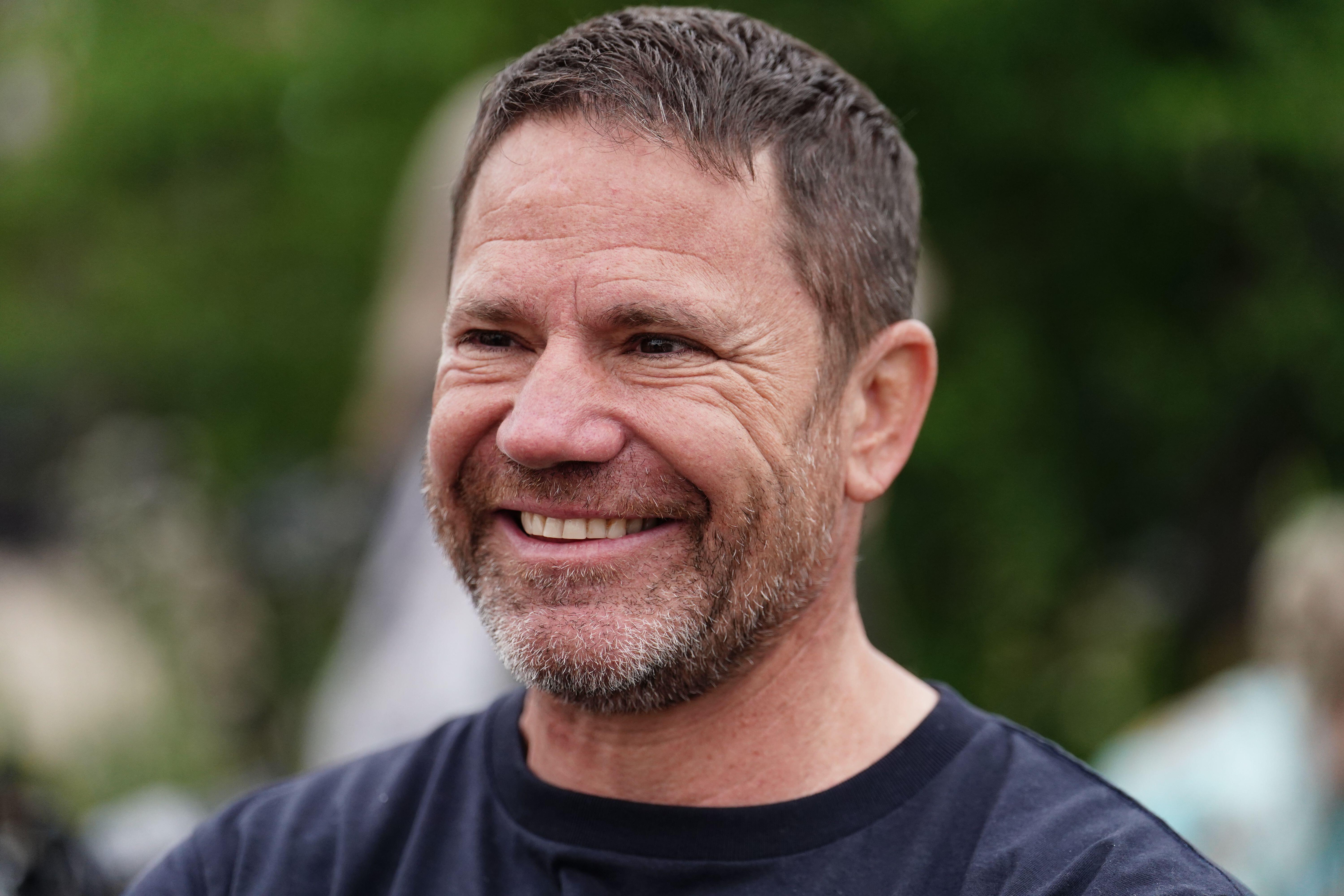 Steve Backshall on sharks, quicksand, and getting his fingertips eaten by piranhas
Steve Backshall on sharks, quicksand, and getting his fingertips eaten by piranhasThe adventurer, broadcaster, scientist and writer Steve Backshall joins the Country Life podcast.
-
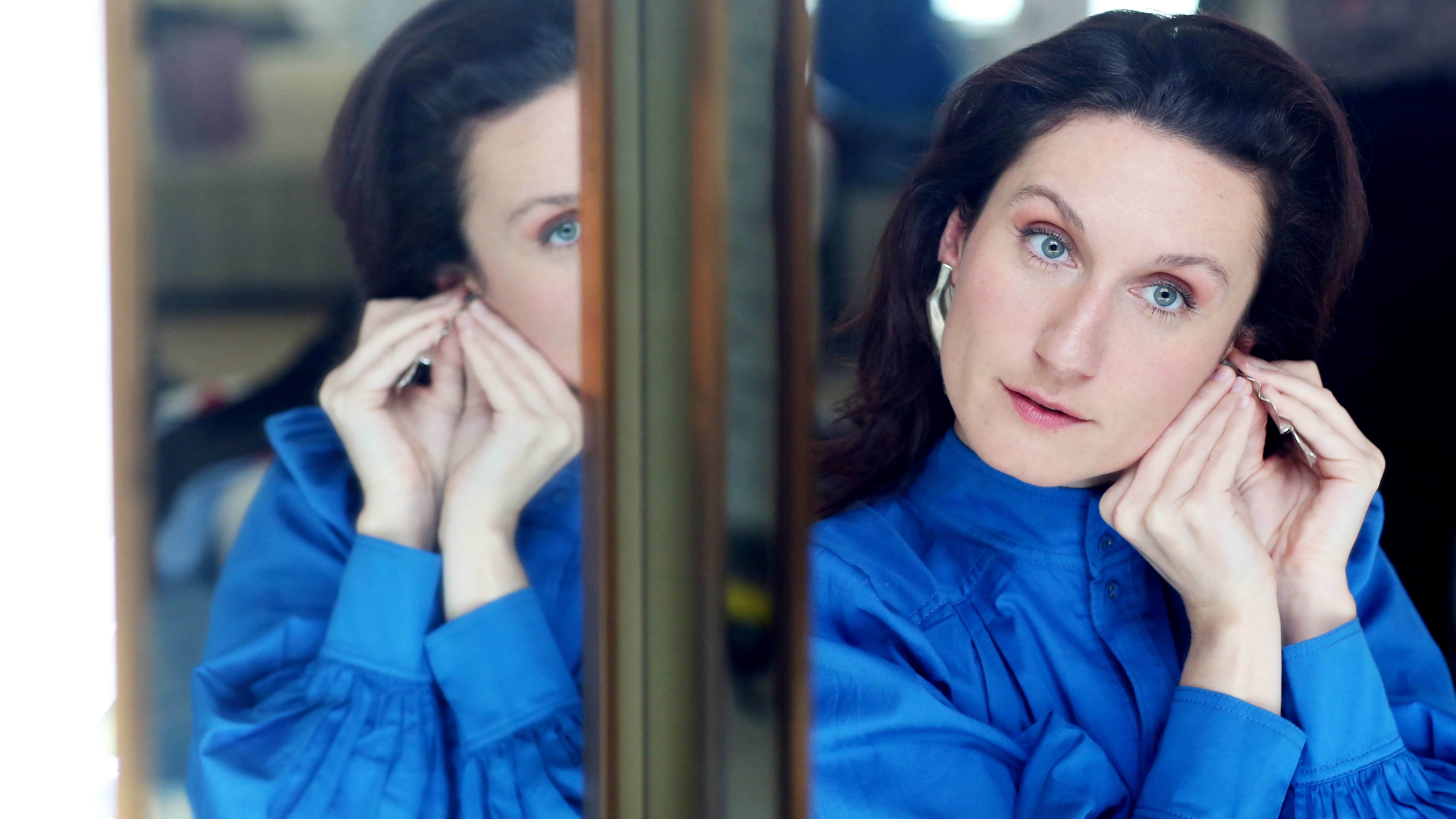 In pursuit of Nancy: Outrageous star Bessie Carter on bringing the Mitford family to life
In pursuit of Nancy: Outrageous star Bessie Carter on bringing the Mitford family to lifeThe scion of acting royalty Imelda Staunton and Jim Carter reveals why she loved playing Nancy Mitford on screen and what it feels like to act opposite her mother on the stage.
-
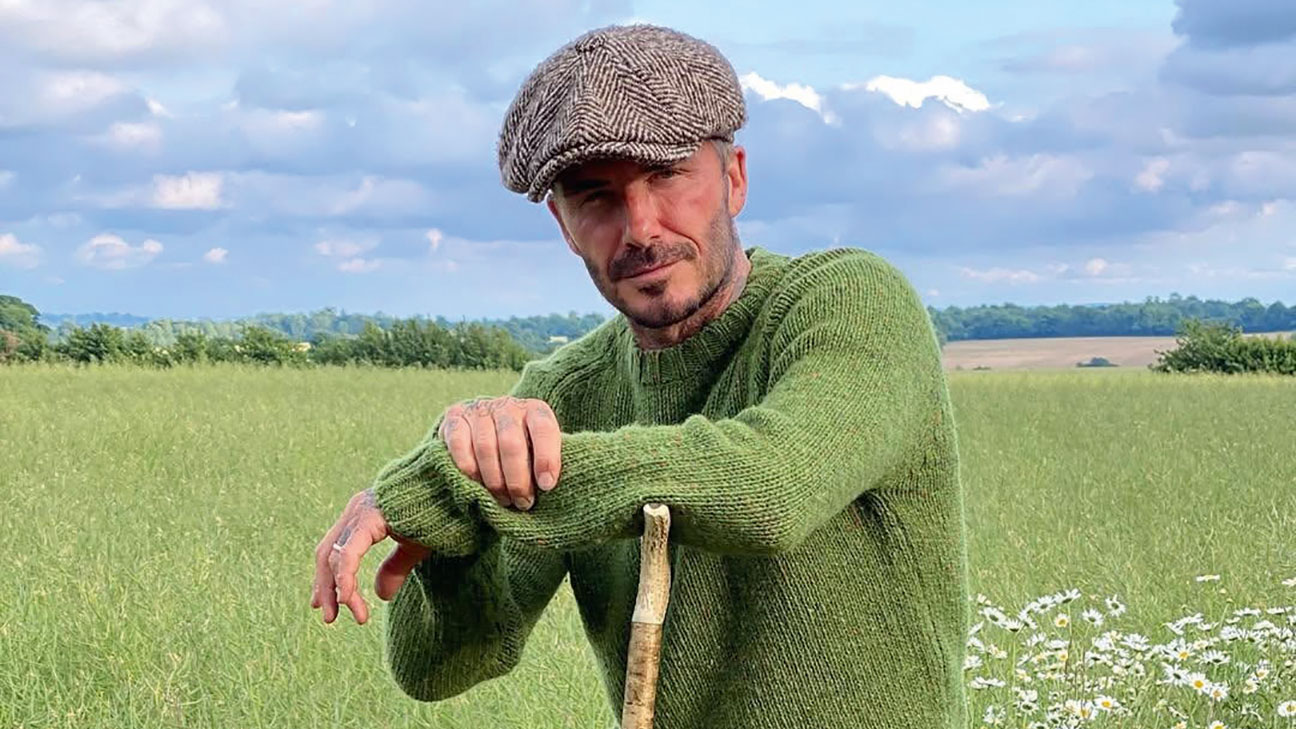 David Beckham to guest edit Country Life
David Beckham to guest edit Country Life'I am looking forward to celebrating what the countryside means to me and my family,' says David Beckham as he gets ready to edit Country Life's issue of October 22, 2025.
-
 Sophia Money-Coutts: How do you turn down another godchild without causing offence?
Sophia Money-Coutts: How do you turn down another godchild without causing offence?Sophia Money-Coutts is the new Debrett's and she's here every Wednesday to set some modern etiquette wrongs, right.
